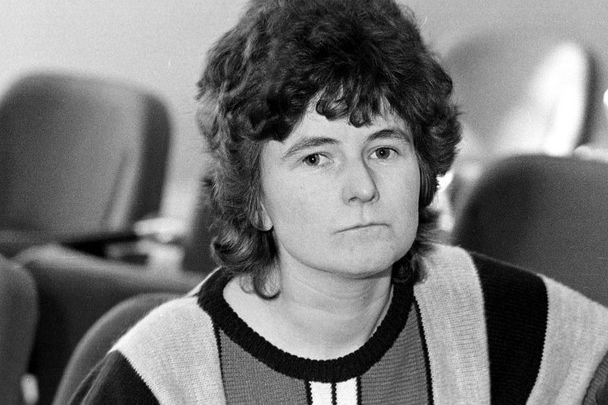The shocking details of the Kerry Babies Case, which is suddenly back in the news in Ireland this week, startled Taoiseach Leo Varadkar, prompting him to take to Twitter on Wednesday to offer a state apology to the woman at the center of the case, Joanne Hayes.
He simply hadn't been aware of what had happened to her, the full shocking details, he admitted. It was a rather surprising thing for him to say, since it's undeniable now that the case eventually transformed the nation.
I only fully learned the details of the Kerry babies case recently as I was too young at the time. It's been eye opening. Joanne Hayes was treated terribly. I want to reiterate the apology to her from the Gardai and to make that apology on behalf of the State.
— Leo Varadkar (@campaignforleo) January 17, 2018
To understand the storm that descended on Joanne Hayes in 1985 its necessary to know a little bit of the social background of what came to be called the Kerry Babies Case.
The worst thing you could do in the rural Ireland of the the mid-1980s was to stand out. Don't make a holy show of yourself was the ubiquitous warning. Meaning, I suppose, don't bother us, don't raise your head above the parapet, don't get uppity, don't question authority, and whatever you do, don't excel.
The bone-deep reactionary conformity of the period was so carefully enforced it meant your public reputation depended more on what you were not than what you were.
It was as if there was a national mediocrity competition in operation and the first prize was to simply be left alone.
Because of that, the thing I remember most vividly about Joanne Hayes, the young woman at the center of the Kerry Babies case in 1985, was her mortified expression. She almost always looked like she wanted the ground to swallow her. One look told you just how uncomfortable she was to be a topic of national conversation.
The same was true of her extended family. They all looked deeply discomfited by the cameras and reporters. In fact, they looked, I remember thinking, as if the parish priest had given them all an unforgettable roasting from the pulpit during the busiest Sunday mass they had all attended.
So there were religious issues in play, and there were class issues in play, and there was an urban and rural divide in play, and there was the Dublin establishment sending a message to the little people.
Dublin had the megaphone and little people were expected to sit in silence as their betters gave them a good dressing down. The rules had been established long before the confrontation commenced. It wasn't a fair fight.
I remember how you could see in all that family's faces the shame that was being directed at them by people intent on teaching them (and us) an unforgettable lesson.
Early on the themes of the case were quickly established. Hayes was presented as a moral monster. Her supposed sexual wantonness, her supernatural reproductive fecundity, were pointed to with horror, in what was unarguably a modern day witch trial.
43 male doctors, psychiatrists, and police officers came down from Dublin to spend six months examining her mind and body. They probed her sexual history. They discussed the dimensions of her genitals. They belittled and harried her on the witness stand to the point where she had to be sedated and then brought back in to testify. They were, most of them, predisposed to find her guilty. It was grotesque.
Their treatment of Hayes was memorably described by writer Nell McCafferty like this: "The country was sickened, and showed support for Joanne Hayes by sending her flowers and Mass cards," she wrote. "When the inquisition finally ended, the country rapidly changed, by constitutional vote, and a New Ireland came into being. It was forged on the anvil of Joanne Hayes’s suffering. Never again, the changes showed, would one woman be held to blame for the ills that had beset Ireland. Or, at least, never again would an exclusively male panel of men sit in judgment of one woman."
I think she's exactly correct. But what I want to remind you of, and what I can't forget myself, are the faces of the rural women who were publicly pilloried in that decade.
One of them belonged to 15-year-old Ann Lovett, who died less than six months after the fractious abortion referendum that we were told would protect Irish women from the evils of contraception, marital breakdown and infidelity.
Six months later here was Ann, trying to give birth with a pair of scissors in a grotto that overlooked a graveyard in County Longford. Both she and the child died within hours of their discovery.
It's 34 years since the terrible events that befell both women, no time at all really. The apologies we owe them for shaming and silencing them, for creating a culture that had a surfeit of condemnation but almost no compassion, have come too late for young women like Ann Lovett. We were an overtly Catholic nation but not a Christian one. We still need to confront that.
How much we have really changed since 1984 is a question we will have an answer to later in May or June of this year when the new abortion referendum takes place. It took 34 years to apologize to Joanne Hayes, after all. I'm sure we'll get around to addressing it some time.




Comments